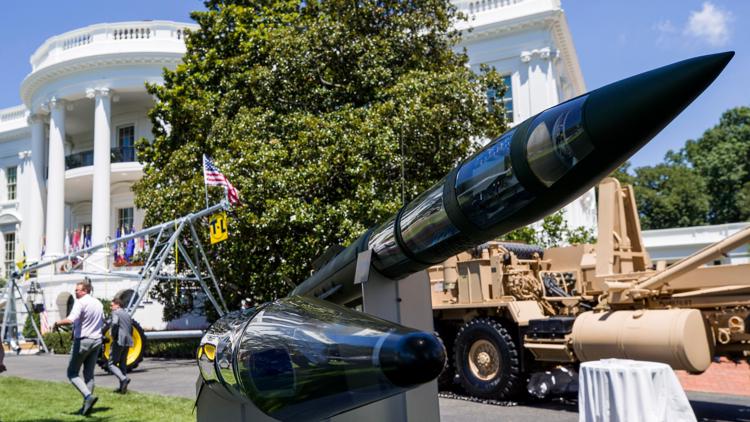The word Sunday comes as Iran has warned Washington to keep its military forces out of Israel.


WASHINGTON — The United States will send a Terminal High Altitude Area Defense battery and troops to Israel, the Pentagon said Sunday, even as Iran warned Washington to keep American military forces out of Israel.
Maj. Gen. Pat Ryder, Pentagon spokesman, said in a statement that Defense Secretary Lloyd Austin authorized the deployment of the THAAD battery at the direction of President Joe Biden.
Ryder said the system will help bolster Israel's air defenses following Iran’s missile attacks on Israel in April and October.
“This action underscores the United States’ ironclad commitment to the defense of Israel, and to defend Americans in Israel, from any further ballistic missile attacks by Iran,” Ryder said.
The Iranian warning came in a post on the social platform X long associated with Foreign Minister Abbas Araghchi, who noted the reports that the U.S. was considering the deployment.
Israel is widely believed to be preparing a military response to Iran’s Oct. 1 attack when it fired roughly 180 missiles into Israel.
It was not imediately clear where the THAAD battery was coming from. The U.S. deployed one of the batteries to the Middle East along with additional Patriot battalions to bolster protections for U.S. forces in the region late last year after the Oct. 7, 2023, attack on Israel by Hamas militants. Ryder also said that the U.S. sent a THAAD battery to Israel in 2019 for training.
According to an April report by the Congressional Research Service, the Army has seven THAAD batteries. Generally each consists of six truck-mounted launchers, 48 interceptors, radio and radar equipment and required 95 soldiers to operate.
The THAAD is considered a complementary system to the Patriot, but it can defend a wider area. It can hit targets at ranges of 150 to 200 kilometers (93 to 124 miles).
.png)









 English (US) ·
English (US) ·